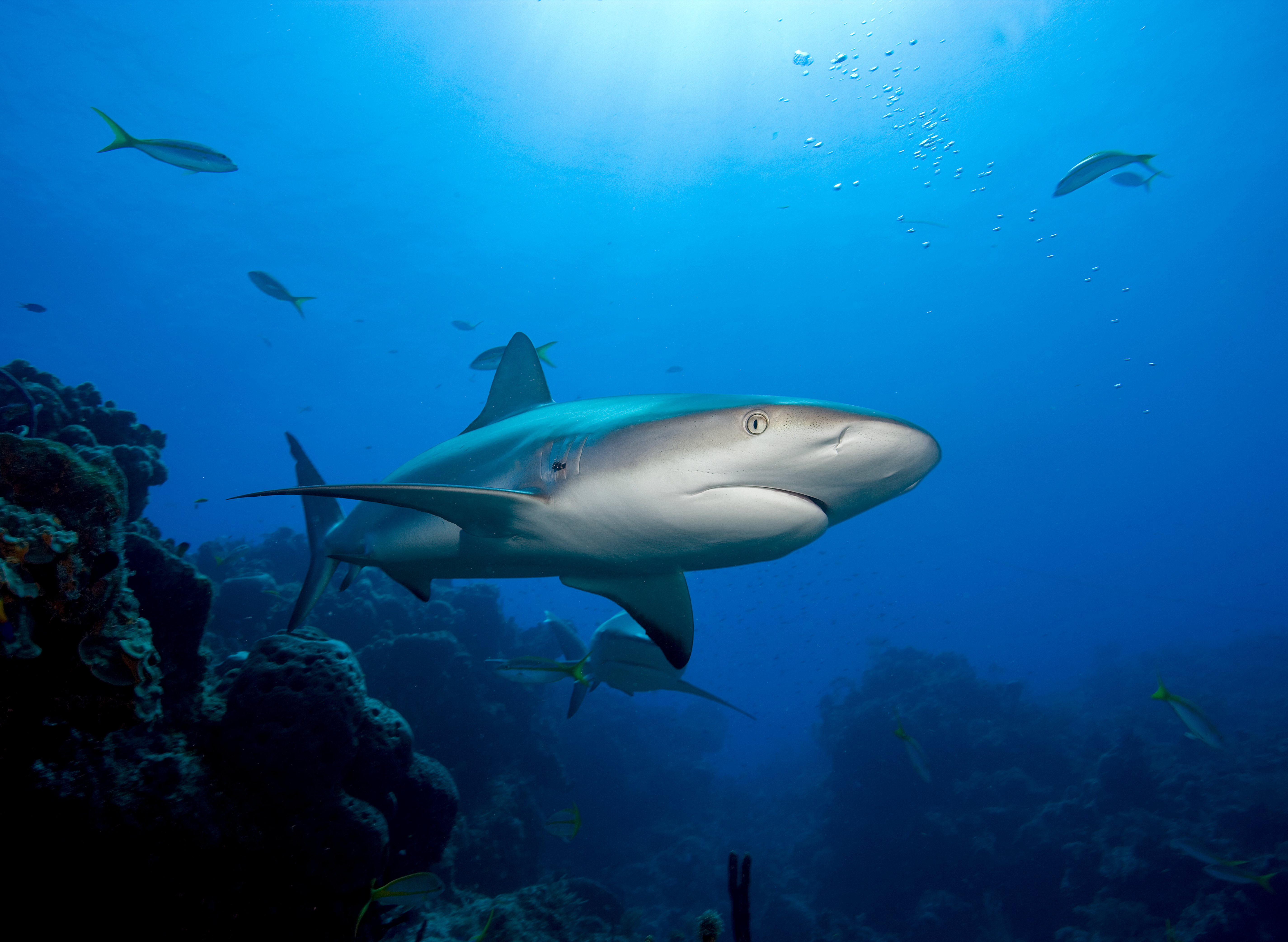Reef sharks are carnivorous; some can get up to twelve feet long! However, you shouldn’t be worried about that as they only have teeth on the sides of their jaws and none in the front. Unlike most fish, they don’t have swim bladders to keep them buoyant, so they must constantly swim. That doesn’t mean they aren’t dangerous, however!
What Are Reef Sharks?

Reef sharks are in the same group as white-tipped and nurse sharks. They live near the water surface and have tiny teeth. Without provocation, reef sharks, which can grow up to six feet in length, pose no danger to humans. Although their bites are not dangerous, they have venomous spines on their dorsal fins that can cause a painful sting if touched.
As their name suggests, reef sharks are most often found in tropical areas close to coral reefs. Although they are scary to look at, these sharks aren’t interested in human food. They tend to be quiet and reserved rather than outgoing. However, they can become dangerous if provoked or food is in the area!
Different Kinds Of Reef Sharks
While it is possible to find shark species in every ocean and many other environments, Reef Sharks live in tropical areas where coral reefs grow. There are over 60 different kinds of Reef Sharks.
The reef sharks that people most often come across are White Tip Reef Sharks and Black Tip Reef Sharks, which account for 80% of attacks on humans. A Reef Shark’s likelihood of being attacked varies from person to person due to different factors, such as the time of day you swim or the part of the reef where you swim.
Do Reef Sharks Attack Humans?

People are often curious about how likely it is for a reef shark to attack humans. Though there are many myths, the truth is that sharks do not deliberately go out looking for human prey, and no documented evidence of a shark purposely attacking a human is available.
Sharks usually don’t want to interact with humans at all, but sharks can mistake us for their prey when they are hungry. One of the biggest reasons that people get bitten by sharks is because they swim too close to a shark while it’s eating.
How Can You Protect Yourself Against A Shark Attack?
You can protect yourself against a shark attack by:
- Staying within designated swimming areas. This is the safest option and a sensible precaution when swimming in natural environments with schools of fish near the surface, such as coral reefs.
- Swimming or surfing in the early morning or late evening when sharks are most likely to be inactive and feeding on prey closer to shore.
- Keeping your distance from other sharks, e.g., white sharks that typically eat seals.
- Avoid swimming or surfing when you are menstruating. The smell of blood can attract sharks that associate it with food.
- Avoid swimming in murky water. This makes it harder for you to see sharks and for them to see you.
- Avoid brightly colored clothing that may attract sharks and avoid wearing jewelry that could get caught in fishing lines while they are being reeled in.









